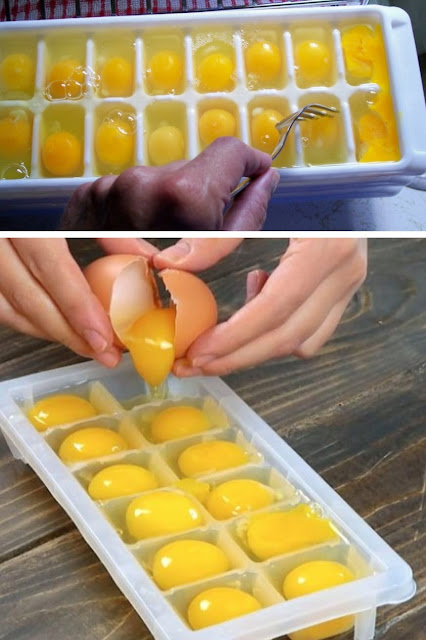ADVERTISEMENT
- Calories: Approximately 55 per egg yolk
- Protein: Approximately 2.7g
- Fats: 4.5g (including 1.6g saturated fat)
- Cholesterol: 186mg
- Abundant in Vitamins A, D, E, B12, Iron, and Choline
Benefits:
- Vitamin D: Vital for bone health and immune function.
- Vitamin B12: Essential for DNA production and nervous system function.
- Vitamin A: Crucial for vision, immune system, and reproduction.
- Iron: Necessary for oxygen transport and red blood cell production.
- Zinc: Critical for immune function, wound healing, and DNA synthesis.
It’s crucial to maintain a balanced diet incorporating eggs to avoid deficiencies or excesses of these nutrients. Moreover, the impact of excessive egg or vitamin consumption varies based on individual health and dietary factors.
Step 1: Preparing Whole Eggs
Action: Gently whisk the whole eggs. Tip: Avoid vigorous whisking to prevent excessive air incorporation, which can affect texture upon defrosting. Storage: Pour the mixture into freezer-safe containers. Tip: Utilize ice cube trays for convenient individual portions. Once frozen, transfer the egg cubes to an airtight freezer bag for easy portioning later.
According to Barbara O’Neill, a renowned nutritionist and educator, “Balancing nutrients through mindful consumption of eggs within a varied diet is essential for optimal health and wellbeing.
ADVERTISEMENT
ADVERTISEMENT
